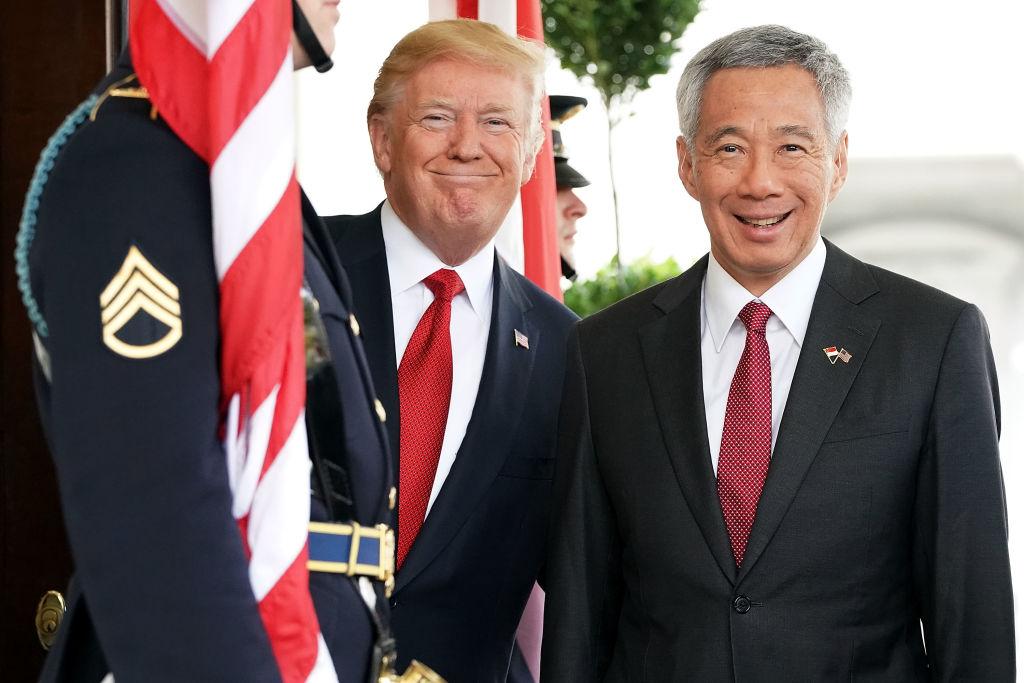How long can Singapore walk the tightrope between the US and China?
Posted By William Choong on January 24, 2020 @ 12:11

Speaking at the Shangri-La Dialogue in May 2019, Singapore’s Prime Minister Lee Hsien Loong called on China and the United States to reach a strategic accommodation amid their festering dispute over trade, technology and other issues.
The US, Lee stressed, needed to forge a ‘new understanding’ that would integrate China’s aspirations within the ‘current system of rules and norms’. Both would need to work together to revise the world system.
Lee’s keynote was widely followed around the world, given the nature of the Sino-US impasse and the need for smaller countries to adapt and evolve their policies amid the growing schism between China and the United States.
Singapore’s policy position is also worth watching because the island republic is a major strategic partner of the United States and a close economic partner of China.
The strategic conundrum mapped out by Lee underscores a deeper malaise in the Asia–Pacific. To paraphrase W.B. Yeats, the regional order is falling apart. As Gideon Rachman put it the Financial Times, America’s military pre-eminence and diplomatic predictability can no longer be taken as a given; at the same time, China is no longer willing to accept a secondary role in the region’s evolving security system.
One of the roots of the contestation arises from the fact that Washington refuses to cede primacy.
Indeed, the new-fangled ‘free and open’ Indo-Pacific strategy—with the enshrined principles of freedom of navigation, respect for international law and maritime security—is seen by many as a euphemism for maintaining the US-led regional order.
China is not working to upend the US-led system, which has worked to its benefit, particularly in the areas of liberalisation of trade and global supply chains.
One assessment is that China’s proposal of an ‘Asia for Asians’ formulation is an indirect way of keeping the US out of the region. Put differently, China’s strategy is to weaken US alliances, erode American centrality in China’s periphery and eventually create a new regional order with China at the core.
The festering geopolitical competition between China and the US has only increased the pressure on Singapore to ‘choose a side’.
As founding prime minister Lee Kuan Yew used to say, when elephants fight, the grass is trampled; yet, when they make love, the grass also tends to suffer.
In fact, Singapore’s inclination not to take sides between the two major powers has a long history. Speaking to the Asahi Shimbun in 2010, Lee Kuan Yew said Singapore had never sought to conscribe (zhiheng) China.
Rather, Singapore sought to effect a balance (pingheng) in the Pacific, based on the presence of American power.
To paraphrase Lord Palmerston, Singapore doesn’t deem itself to have permanent friends in the US and China; it only pursues pro-US and pro-China policies when such policies are judged to be in the republic’s interests.
In 1978, the US Navy used Tengah Air Base for long-range flights over the Indian Ocean. After the US military was booted out of Philippine bases in the early 1990s, Singapore offered the US access to naval facilities at Changi Naval Base—a direct recognition that the US military presence is beneficial for regional stability.
In September last year, the US and Singapore renewed a 1990 memorandum of understanding which allows US military aircraft and naval vessels to use facilities on the island.
The two countries signed a landmark free trade agreement in 2003 and were partners in the Trans-Pacific Partnership (until US President Donald Trump withdrew the US from the pact).
Singapore–US ties are so close that one US official noted that the Philippines, a formal US ally, acts more like a partner, while Singapore is a partner that acts like an ally.
At the same time, Sino-Singapore relations have never been better. Singapore is China’s top foreign investor and a firm supporter of the Asian Infrastructure Investment Bank and the Belt and Road Initiative. The two governments have formed partnerships to develop three projects in China: Suzhou Industrial Park, the Chongqing Connectivity Initiative and Tianjin Eco-city.
Unsurprisingly, Singapore doesn’t want to be caught in any countervailing coalition, led by the US or otherwise, against China.
Speaking to the Washington Post in September, Lee Hsien Loong noted that US allies and partners are so ‘deeply enmeshed’ with China that forcing them to dissociate from Beijing would be a ‘challenging strategic stance to make’. That doesn’t mean that Singapore can avoid making a choice indefinitely.
The renewal of the 1990 Singapore–US agreement could lead to China’s asking for formal access to Singaporean facilities by Chinese warships. In a Taiwan Strait contingency, Singapore might be asked by the US to provide resupply and access to US naval ships going from the Persian Gulf towards the strait. That would put it in a quandary.
As a US Navy admiral has described it more vividly, Singapore is walking on a narrowing tightrope between the two powers. In the meantime, however, kicking the can down the road makes strategic sense.
Article printed from The Strategist: https://aspistrategist.ru
URL to article: /how-long-can-singapore-walk-the-tightrope-between-the-us-and-china/
Click here to print.